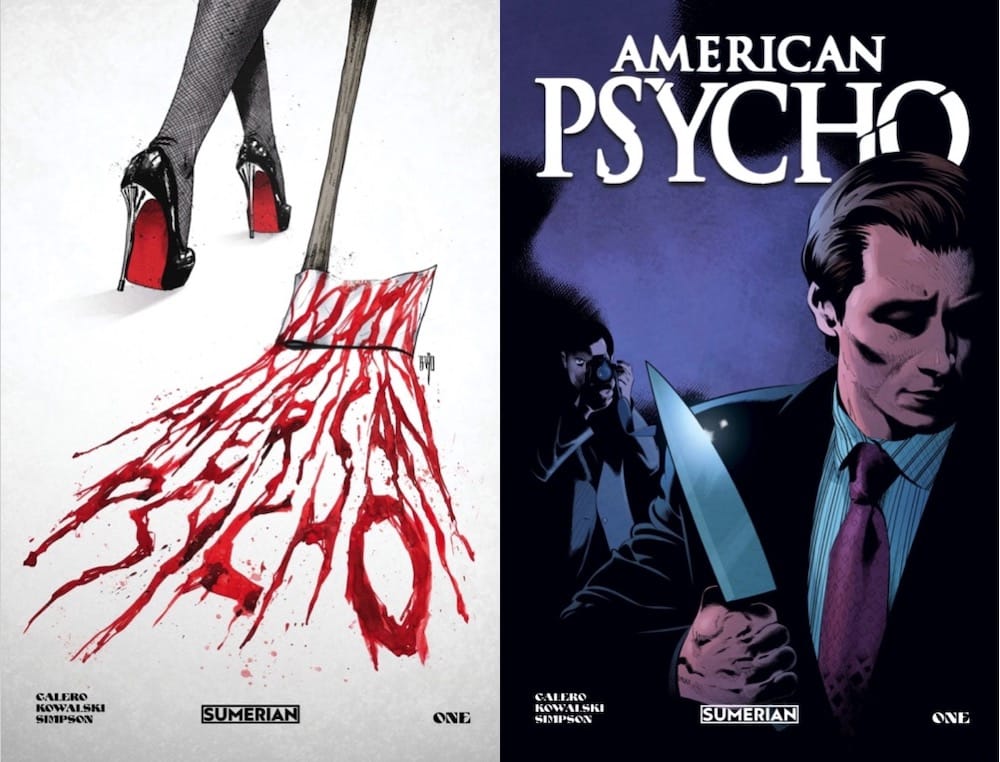The American Psycho Comic Series Soundtrack by Sumerian Records is a haunting, electrifying collection that doesn’t just accompany the comic book; it amplifies it, pushing listeners into a sonic experience as visceral and thrilling as the story’s sharp-edged reimagining of Patrick Bateman’s universe. This soundtrack isn’t merely background music—it’s a full-bodied immersion, allowing fans to feel every pulse of tension, every edge of darkness, and every beat of Bateman’s unhinged world.

Leading the soundtrack is WEATHERS’ stunning original track, “Killer,” which drops listeners into the twisted emotion of a doomed romance. Produced by industry talents Max Urasky and No Love For the Middle Child, with mixing by the legendary Sean Beavan, this track immediately establishes a raw, intimate atmosphere that connects directly to the emotional core of American Psycho. Frontman Cameron Boyer describes “Killer” as an exploration of a toxic relationship and the struggle to let go. This emotional depth mirrors the comic’s dark narrative, in which characters are consumed by their demons, haunted by their choices, and hurtling toward inevitable destruction. Boyer’s sentiment captures this perfectly, revealing a love for the source material that fans of the original movie will deeply appreciate.
WEATHERS isn’t alone in making this soundtrack remarkable. A range of top-tier artists bring their own unique interpretations and bold reworkings to the mix. Diamante’s fierce rendition of Pat Benatar’s “Love Is a Battlefield” sets a haunting tone, lending emotional gravitas to Bateman’s psychological battlefield. Gvllow, alongside Mothica, reinvents Billy Idol’s “Eyes Without a Face,” infusing it with chilling new layers that feel right at home in American Psycho’s eerie, psychological ambiance. And Charlotte Sands’ powerful take on AFI’s “Miss Murder” is a moment of pure sonic rebellion, bringing grit and fury to the soundtrack in ways that both elevate and intensify the comic’s dual storyline.



Nathan Yocum, president of Sumerian Comics, brilliantly describes the soundtrack as “an immersive experience that pulls listeners deeper into the dark, electrifying world this series creates.” He’s not exaggerating. Each track serves as a portal, connecting listeners to the twisted psyche of Bateman and new anti-heroine Charlene Carruthers—a millennial who spirals into violence under the weight of modern pressures. The soundtrack bridges these timelines with an expert touch, allowing us to feel the depth of Carruthers’ unraveling alongside Bateman’s own sinister exploits.
The album’s standout collaborations continue to push boundaries: Ice Nine Kills, featuring Reel Big Fish, reimagines “Walking on Sunshine” as a punk-ska masterpiece. They manage to take a classic pop song and transform it into something gritty and macabre, a feat that speaks to the creative boldness Sumerian Records brings to this soundtrack. Puscifer’s original single “The Algorithm” is equally impressive, a brooding, introspective piece that aligns beautifully with American Psycho’s exploration of personal delusion and identity.

The soundtrack doesn’t just reinterpret music; it enhances the American Psycho story. Unlike Pluto’s cover of Eurythmics’ “Sweet Dreams” is spine-chilling, carrying a darkness that taps directly into the tone of the comic, while Perturbator’s rendition of Depeche Mode’s “Dangerous” closes the album with a thrilling, synth-heavy edge, leaving listeners hungry for more.
The results are astounding. Between the 6.1 million streams already racked up and the impressive sales for the comic series itself, it’s clear this soundtrack has resonated widely. Sumerian Records has crafted something genuinely special here, not just a collection of songs but a visceral experience that merges the allure of iconic music with a story that is, as ever, deliciously unnerving.
For anyone captivated by the shadowy allure of American Psycho, this soundtrack is essential listening. It doesn’t merely echo the comic’s narrative—it heightens it, breathing new life into the classic tale of psychological decay with each note.









